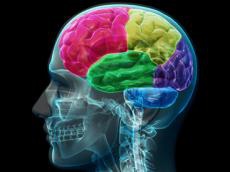|
|
TODAY.AZ / Weird / Interesting
Hard to cheat brain with artificial sweets
26 September 2013 [09:50] - TODAY.AZ
 Eating low-calorie sweetened products – especially when hungry or exhausted – may lead to a higher likelihood of seeking high calorie alternatives later, due to a newly discovered signal in the brain, suggests new research published in The Journal of Physiology.
Eating low-calorie sweetened products – especially when hungry or exhausted – may lead to a higher likelihood of seeking high calorie alternatives later, due to a newly discovered signal in the brain, suggests new research published in The Journal of Physiology.The results of the new study imply that it is hard to fool the brain by providing it with `energyless` sweet flavours. Our pleasure in consuming sweet solutions is driven to a great extent by the amount of energy it provides: greater reward in the brain is attributed to sugars compared to artificial sweeteners.
Professor Ivan de Araujo, who led the study at Yale University School of Medicine USA, says:
“The consumption of high-calorie beverages is a major contributor to weight gain and obesity, even after the introduction of artificial sweeteners to the market. We believe that the discovery is important because it shows how physiological states may impact on our choices between sugars and sweeteners.
“Specifically, it implies that humans frequently ingesting low-calorie sweet products in a state of hunger or exhaustion may be more likely to `relapse` and choose high calorie alternatives in the future.
“The results suggest that a `happy medium` could be a solution; combining sweeteners with minimal amounts of sugar so that energy metabolism doesn`t drop, while caloric intake is kept to a minimum.”
The study identified a specific physiological brain signal that is critical for determining choice between sugars and sweeteners. This signal regulates dopamine levels – a chemical necessary for reward signalling in the brain – and only arises when sugar is broken down into a form where it is usable as fuel for cells of the body to function.
Research was performed in mice, using a combination of behavioural testing involving sweeteners and sugars, whilst measuring chemical responses in brain circuits for reward. The researchers believe the findings are likely to reflect in humans.
/AzerTAg/
URL: http://www.today.az/news/interesting/126645.html
 Print version
Print version
Views: 1405
Connect with us. Get latest news and updates.
See Also
- 06 December 2024 [22:20]
Are scented candles harmful to health? - 23 November 2024 [14:11]
Magnitude 4.5 earthquake hits Azerbaijan's Lachin - 20 November 2024 [23:30]
Launch vehicle with prototype of Starship made its sixth test flight - 27 October 2024 [09:00]
Fuel prices expected to rise in Sweden - 24 October 2024 [19:14]
Turkiye strikes terror targets in Iraq and Syria - 23 October 2024 [23:46]
Kazakhstan supplied almost entire volume of oil planned for 2024 to Germany in 9 months - 23 October 2024 [22:17]
Taiwan reported passage of Chinese Navy aircraft carrier near island - 23 October 2024 [21:50]
Russia remains largest oil supplier to India - 16 October 2024 [17:54]
Gamesummit co-founder shares insights on future of gaming industry in Azerbaijan [EXCLUSIVE] - 12 October 2024 [18:27]
TikTok cuts jobs, turns to AI for content moderation
Most Popular
 Pashinyan plants a pig for the Armenians
Pashinyan plants a pig for the Armenians
 Changing global geopolitics & implications for Pakistan
Changing global geopolitics & implications for Pakistan
 U.S. finalizes US$4.7 bln in CHIPS Act subsidy to Samsung Electronics
U.S. finalizes US$4.7 bln in CHIPS Act subsidy to Samsung Electronics
 Turkish FM meets Syrian leader in post-Assad era
Turkish FM meets Syrian leader in post-Assad era
 Gloveman: Macron and his one-time premieres
Gloveman: Macron and his one-time premieres
 New Zealand rejects plan to introduce its own passports for residents of Cook Islands
New Zealand rejects plan to introduce its own passports for residents of Cook Islands
 Azerbaijani ambassador discusses climate cooperation with Iranian officials
Azerbaijani ambassador discusses climate cooperation with Iranian officials
